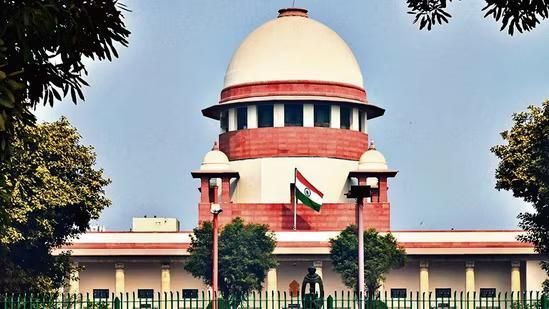
No Action Against Owners of 10 & 15-yr-old Diesel & Petrol Vehicles for 4 Weeks: SC
The Supreme Court has passed a significant order on the ban on old diesel and petrol vehicles in Delhi, giving a breather to the owners of these vehicles. In a recent development, the court has stated that no “coercive” action will be taken against the owners of over 10-year-old diesel and 15-year-old petrol vehicles in Delhi for four weeks. This order was passed in response to an application filed by the Delhi government, which challenged the ban on the vehicles as a pollution control measure in the capital.
The Delhi government had approached the Supreme Court seeking a stay on the order of the National Green Tribunal (NGT), which had banned the operation of over 10-year-old diesel and 15-year-old petrol vehicles in the city from January 1. The NGT had imposed the ban to reduce air pollution in Delhi, which has been a major concern in recent years.
The Delhi government’s application was filed on the grounds that the NGT’s order would cause significant hardship to the owners of these vehicles and could lead to a shortage of public transportation options. The government also argued that the ban would not be effective in reducing pollution, as many of these vehicles had already been phased out or were not in use.
The Supreme Court has now granted a stay on the NGT’s order, giving the owners of old diesel and petrol vehicles a four-week reprieve from the ban. During this period, the government will have to come up with a more effective plan to reduce pollution in the city. The court has also directed the government to file an affidavit stating the steps it will take to reduce pollution in Delhi.
This order is a significant relief for the owners of old vehicles, who would have faced significant financial losses if the ban had been enforced. Many of these vehicles are still in good condition and are used as public transportation options, such as autos and taxis. The ban would have also affected the livelihoods of many people who rely on these vehicles for their daily income.
However, environmental activists have criticized the Supreme Court’s order, saying that it is a setback for the efforts to reduce pollution in Delhi. They argue that the NGT’s order was a necessary step to reduce the city’s pollution levels, which are among the highest in the world.
The Supreme Court’s order is also seen as a victory for the Delhi government, which had been pushing for a more nuanced approach to reducing pollution in the city. The government had argued that a blanket ban on old vehicles would not be effective and would cause unnecessary hardship to the public.
In the past, the Supreme Court has taken a tough stance on pollution in Delhi, ordering the government to take immediate action to reduce emissions. In 2015, the court had ordered the government to implement the odd-even vehicle rationing scheme, which restricts the use of private vehicles in the city based on their number plates.
The Delhi government has been working to reduce pollution in the city through a range of measures, including the promotion of electric vehicles, the installation of pollution-reducing technologies in vehicles, and the implementation of odd-even vehicle rationing. However, despite these efforts, the city’s pollution levels remain high.
The Supreme Court’s order is a reminder that the battle against pollution in Delhi is far from over. While the ban on old vehicles has been stayed, the government will still have to come up with a more effective plan to reduce pollution in the city. The court’s direction to the government to file an affidavit stating the steps it will take to reduce pollution is a positive step towards achieving this goal.
In conclusion, the Supreme Court’s order giving a four-week reprieve to the owners of old diesel and petrol vehicles in Delhi is a significant development in the ongoing battle against pollution in the city. While the order is a relief for the owners of these vehicles, it is also a reminder of the need for a more effective plan to reduce pollution in Delhi. The Delhi government will have to work towards implementing a more nuanced approach to reducing pollution, one that balances the needs of the public with the need to protect the environment.






